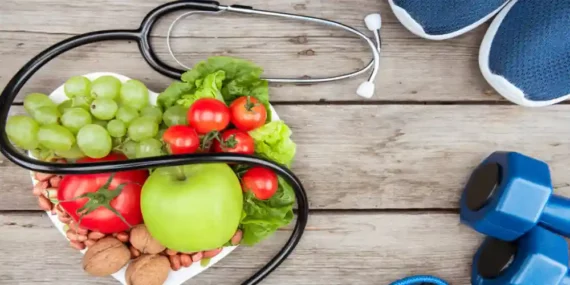For individuals on a journey to gain weight, whether for health, athletic performance, or other reasons, snacking can play a pivotal role in achieving their goals. Snacks provide an opportunity to increase daily caloric intake, boost nutrient intake, and maintain consistent energy levels. However, successful weight gain through snacking requires strategic choices and portion control to ensure that the additional calories come from nutritious sources rather than empty calories. In this 1000-word article, we’ll explore the concept of healthy snacking for weight gain, providing tips on making smart snack choices and managing portion sizes effectively.
The Role of Snacking in Weight Gain
Before delving into the specifics of healthy snacking, it’s essential to understand the role snacks play in the context of weight gain:
- Extra Calories: Snacks are an additional source of calories beyond regular meals. For individuals seeking to gain weight, this surplus of calories is essential.
- Nutrient Density: Smart snack choices can increase nutrient intake. By opting for nutrient-dense snacks, individuals can ensure that the extra calories contribute to overall health, not just weight gain.
- Energy Levels: Snacking can help maintain consistent energy levels throughout the day. This is especially beneficial for athletes and active individuals who require sustained energy for their training and activities.
- Metabolism Support: Regular snacking can help keep the metabolism active and prevent excessive hunger, which can lead to overeating during meals.
Smart Snacking Strategies for Weight Gain
To ensure that snacking contributes positively to your weight gain journey, follow these smart strategies:
- Choose Nutrient-Dense Foods: Opt for snacks that provide essential nutrients like vitamins, minerals, fiber, and protein. Nutrient-dense options include:
- Fresh fruits and vegetables
- Nuts and seeds
- Greek yogurt
- Cottage cheese
- Whole-grain crackers or rice cakes
- Nut butter (peanut, almond, or cashew)
- Hummus with whole-grain pita or vegetable sticks
- Incorporate Protein: Protein is vital for muscle growth and repair. Include protein-rich snacks like:
- Hard-boiled eggs
- Edamame
- Jerky (beef, turkey, or plant-based)
- Protein bars or shakes (read labels for added sugars)
- Healthy Fats: Adding healthy fats to your snacks can increase calorie intake and provide essential nutrients. Consider:
- Avocado slices with whole-grain toast
- Trail mix with nuts, seeds, and dried fruits
- Greek yogurt with a drizzle of honey and chopped nuts
- Complex Carbohydrates: Carbohydrates are an excellent energy source. Choose complex carbs to keep energy levels stable:
- Whole-grain bread or crackers with cheese
- Oatmeal with nuts and berries
- Whole-grain cereal with milk or yogurt
- Hydration: Alongside your snacks, stay well-hydrated by drinking water or herbal teas. Dehydration can negatively impact appetite and overall health.
- Preparation and Planning: Plan your snacks in advance, so you have nutritious options readily available. Prepare snack packs of cut fruits, vegetables, or nuts to grab on the go.
- Watch Out for Added Sugars and Empty Calories: Avoid sugary snacks and empty-calorie options like soda, candy, and chips. While these may increase calorie intake, they offer little nutritional value.
Portion Control for Healthy Snacking
Portion control is critical when snacking for weight gain. Overeating, even with nutritious snacks, can lead to unwanted weight gain in the form of body fat. Here are some tips for managing portion sizes effectively:
- Use Measuring Tools: Initially, use measuring cups, spoons, and kitchen scales to portion snacks accurately. This helps develop an understanding of appropriate serving sizes.
- Read Food Labels: Pay attention to serving sizes on food labels. Many packaged snacks provide nutritional information for a standard serving size.
- Divide Snacks: If you buy snacks in bulk, portion them into smaller containers or resealable bags to avoid mindless eating of larger quantities.
- Mindful Eating: Eat snacks mindfully, savoring each bite and paying attention to hunger cues. Avoid distractions like television or smartphones while snacking.
- Set Timed Snack Breaks: Establish specific snack times during the day to prevent constant grazing, which can lead to excessive calorie intake.
- Listen to Your Body: Pay attention to your body’s signals of hunger and fullness. Stop eating when you feel satisfied, not overly full.
Balancing Snacks with Meals
Snacking should complement, not replace, regular meals. While snacks contribute to calorie intake, they should not overshadow the nutritional value of main meals. Here’s how to balance snacks with meals effectively:
- Plan Regular Meals: Ensure you have structured breakfast, lunch, and dinner times. Meals should provide a balanced mix of nutrients and calories.
- Snack Timing: Schedule snacks between meals to maintain consistent energy levels. Aim for mid-morning and mid-afternoon snacks, and possibly one before bedtime if needed.
- Portion Size Awareness: Be mindful of the size of your snacks in relation to your meals. Snacks should be smaller than meals but substantial enough to provide extra calories and nutrients.
- Variety: Choose a variety of foods for meals and snacks to ensure you’re getting a wide range of nutrients.
Snack Ideas for Weight Gain
Here are some snack ideas that align with the principles of healthy snacking for weight gain:
- Greek Yogurt Parfait: Layer Greek yogurt with granola, fresh berries, and a drizzle of honey for a protein-packed snack.
- Trail Mix: Combine almonds, walnuts, pumpkin seeds, and dried cranberries for a satisfying mix of protein, healthy fats, and carbohydrates.
- Hummus and Veggies: Dip carrot, cucumber, and bell pepper sticks in hummus for a fiber-rich and nutritious snack.
- Apple with Nut Butter: Slice an apple and enjoy it with almond or peanut butter for a balance of carbohydrates, fiber, and healthy fats.
- Cottage Cheese with Fruit: Top a bowl of cottage cheese with pineapple chunks or sliced peaches for a protein-rich, sweet treat.
- Oatmeal with Nut Toppings: Make a small bowl of oatmeal and add chopped nuts, sliced banana, and a sprinkle of cinnamon.
- Avocado Toast: Mash half an avocado on whole-grain toast and season with salt and pepper for a satisfying snack rich in healthy fats.
Conclusion
Healthy snacking is a valuable tool in the weight gain journey, allowing individuals to increase calorie intake while providing essential nutrients. By making smart snack choices and practicing portion control, weight gain can be achieved in a manner that supports overall health and well-being. Remember that the goal is not just to gain weight, but to do so in a way that promotes a balanced and nutritious diet. As with any dietary changes, it’s essential to consult with a healthcare professional or registered dietitian before embarking on a weight gain plan to ensure it aligns with your specific goals and needs.




